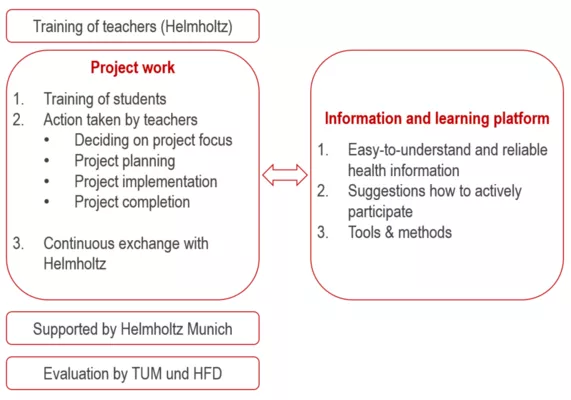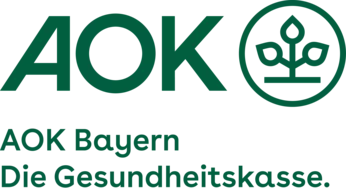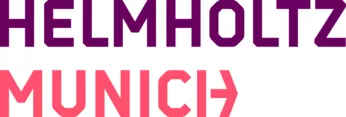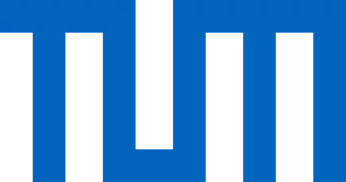Health information and health literacy for schools
Together with Helmholtz Munich (HM) and Fulda University of Applied Sciences (HFD), the consortium project "Health Promotion Academy" aims at developing and evaluating an information and learning platform focussing healthy living. The project aims to promote health literacy of students and teachers in secondary schools from grade 5 onwards. Students will be encouraged to make self-determined decisions regarding their health promotion, prevention, and health care. Strengthening health literacy will contribute to children growing up healthy and living a healthy life. The project is funded by the AOK Bavaria from 2022-2025 and also intends to support schools in implementing their own health projects focussing health literacy.
More than half of the schoolchildren in Germany have serious difficulties in managing health information. Results from various studies in recent years also show that these findings often apply irrespective of gender, migration background and across German federal states. However, younger children have lower health literacy than older adolescents, and higher health literacy is associated with healthier behaviors (diet, physical activity, sleep, alcohol and substance use) and better health outcomes. In addition, there is a social gradient in health literacy across all ages, meaning that children and adolescents from families with lower affluence and socioeconomic status are more likely to have lower health literacy than their same age peers. At the same time, digital communication technologies, the Internet and social media, and artificial intelligence are transforming everyday live settings of children and adolescents, increasingly demanding competencies to manage health information and navigate media to make health-promoting decisions.
The "Health Promotion Academy" aims to address these challenges, which have long become an integral part of children's and young people's everyday lives, through educational programs to strengthen the necessary health information competencies in order to master the management of the new information environments they are facing. In the first project year, the project team will work with students to develop an information and learning platform that provides evidence-based information on various health topics in a simple, understandable and target-group-oriented format. The aim is to encourage children and young people to make healthy choices and develop healthy behaviors. In the second year, students and teachers will work together to develop and implement their own health projects. Students will be trained as multipliers ("health buddies") to share their health knowledge with their peers. The necessary knowledge and the methods and tools required to carry out their projects are provided to the students in advance in training courses conducted by us and during the project work.

Using the information and learning platform, teachers should be enabled to find further information and instructional materials on various health topics in order to promote health literacy at school and in the classroom. The teachers, as role models and multipliers for students, are actively involved in the project. In training sessions, they receive evidence-based health information as well as methodological and instructional support for developing and implementing the health projects. In addition, teachers have the opportunity to regularly exchange information with the project team and ask questions.
The teams at TU Munich and HFD will accompany these processes and evaluate them scientifically. In doing so, we will draw on validated and reliable tools and concepts that we have developed in previous projects on health literacy in childhood and adolescence.
If you would like to learn more about the Health Promotion Academy please visit the project website.
Project lead and contact
Prof. Dr. Orkan Okan (project lead)




